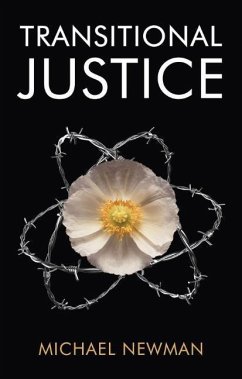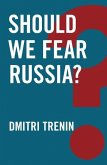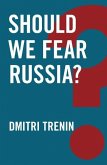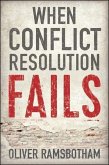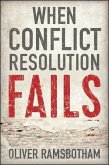What should be done after the end of a repressive regime or a civil war? How can bitter divisions be resolved in a way that combines reconciliation with accountability?
In this book, Michael Newman accessibly introduces these debates, outlining the key ideas and giving an overview of the vast literature by reference to case studies in such places as South Africa, Cambodia and Sierra Leone. While recognising that every situation is different, he argues that is vital to contend fully with the past and address the fundamental causes of mass human rights abuses.
A readable overview for those coming to the subject of transitional justice for the first time, and food for thought for those already familiar with it, this book is invaluable in areas ranging from politics and international relations to peace and conflict studies, law, human rights and philosophy.
Hinweis: Dieser Artikel kann nur an eine deutsche Lieferadresse ausgeliefert werden.
In this book, Michael Newman accessibly introduces these debates, outlining the key ideas and giving an overview of the vast literature by reference to case studies in such places as South Africa, Cambodia and Sierra Leone. While recognising that every situation is different, he argues that is vital to contend fully with the past and address the fundamental causes of mass human rights abuses.
A readable overview for those coming to the subject of transitional justice for the first time, and food for thought for those already familiar with it, this book is invaluable in areas ranging from politics and international relations to peace and conflict studies, law, human rights and philosophy.
Hinweis: Dieser Artikel kann nur an eine deutsche Lieferadresse ausgeliefert werden.
'A highly readable rendering of the current state of the field of transitional justice; ecumenical and comprehensive, it embraces the project of how to reckon with the past.'
Ruti Teitel, New York Law School, author of Globalizing Transitional Justice
'This book masterfully contextualises the dizzying array of theoretical work in transitional justice while doing full service to disagreements. Reflective, critical and persuasive, it is ideal for undergraduate and postgraduate study.'
Padraig McAuliffe, University of Liverpool
'Michael Newman provides an excellent and up-to-date summary of the literature and approaches to transitional justice that will be invaluable for students, scholars and practitioners, as well as making important interventions of his own on topics as diverse as gender, culture and climate change.'
Rachel Kerr, King's College London
Ruti Teitel, New York Law School, author of Globalizing Transitional Justice
'This book masterfully contextualises the dizzying array of theoretical work in transitional justice while doing full service to disagreements. Reflective, critical and persuasive, it is ideal for undergraduate and postgraduate study.'
Padraig McAuliffe, University of Liverpool
'Michael Newman provides an excellent and up-to-date summary of the literature and approaches to transitional justice that will be invaluable for students, scholars and practitioners, as well as making important interventions of his own on topics as diverse as gender, culture and climate change.'
Rachel Kerr, King's College London

